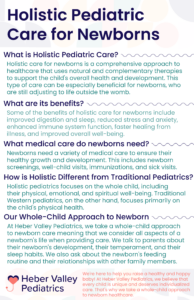Amidst the hustle and bustle of everyday life, it’s easy to overlook the importance of self-care and family well-being. However, as the new year unfolds, it presents an ideal moment to pause, reflect, and consciously steer our lives toward a healthier trajectory. Beyond individual resolutions, consider establishing collective family goals that promote a harmonious and health-conscious household. This shared commitment magnifies the impact, creating a supportive environment for everyone.
1. Prioritize Regular Exercise:
Physical activity is a cornerstone of a healthy lifestyle. Regular exercise not only improves cardiovascular health and maintains a healthy weight but also boosts the immune system. Aim for at least 150 minutes of moderate-intensity exercise per week, such as brisk walking, jogging, or cycling. Incorporating family-friendly activities like hiking, biking, or playing sports together can make exercise an enjoyable and bonding experience for the whole family. Don’t forget to consult pediatric specialists for age-appropriate activities and guidelines.
2. Maintain a Nutrient-Rich Diet:
A well-balanced and nutritious diet is essential for overall health. Include a variety of fruits, vegetables, whole grains, lean proteins, and healthy fats in your meals. Minimize processed foods, sugary snacks, and excessive intake of salt. Make mealtime a family affair by involving everyone in the preparation and encouraging a diverse range of food choices. This not only ensures proper nutrition but also fosters a positive relationship with food for children. Regular consultations with pediatricians can provide tailored dietary recommendations for growing children.
3. Prioritize Mental Health:
Mental health is as crucial as physical health, and the two are interconnected. Practice stress-reducing activities such as mindfulness, meditation, or yoga to promote mental well-being. Encourage open communication within the family, creating a supportive environment where everyone feels comfortable expressing their thoughts and feelings. If needed, seek professional help for mental health concerns. Pediatric care can offer insights into age-appropriate strategies to nurture mental well-being in children.
4. Ensure Adequate Sleep:
Adequate sleep is a fundamental component of good health. Establish consistent sleep routines for both adults and children. Create a conducive sleep environment by minimizing screen time before bedtime and keeping the bedroom dark and quiet. Quality sleep contributes to better mood, improved cognitive function, and a strengthened immune system. Pediatric specialists can provide guidance on establishing healthy sleep habits for children of different age groups.
5. Practice Good Hygiene:
Personal hygiene is paramount for preventing the spread of illnesses. Teach and reinforce good hygiene habits within your family, including regular hand washing, covering the mouth and nose when coughing or sneezing, and maintaining clean living spaces. By instilling these habits, you reduce the risk of infections and contribute to a healthier household. Regular check-ups with pediatricians can ensure that children are meeting developmental milestones and maintaining good health.
6. Stay Hydrated:
Water is vital for numerous bodily functions, including digestion, circulation, and temperature regulation. Encourage your family to drink an adequate amount of water throughout the day. Limit sugary beverages and opt for water as the primary choice. Keeping well-hydrated supports overall health and can help prevent issues such as dehydration and fatigue. Consult with pediatric specialists to determine appropriate hydration needs for children based on their age and activity level.
7. Regular Health Check-ups:
Prevention is key when it comes to health. Schedule regular check-ups for yourself and your family members to monitor health status and detect potential issues early on. Vaccinations, screenings, and routine exams are crucial components of preventive healthcare. Keep track of medical appointments and adhere to recommended schedules for vaccinations and screenings. Regular pediatric check-ups are essential for monitoring the growth and development of children.
8. Safety First:
Safety should be a top priority in every household. Take steps to childproof your home, ensuring a secure environment for younger family members. Regularly check smoke detectors, carbon monoxide detectors, and fire extinguishers. Create emergency plans and practice them with the entire family. Being prepared for unforeseen circumstances is a proactive way to protect your loved ones. Pediatric specialists can offer advice on creating a safe environment for children and preventing common accidents.
9. Limit Screen Time:
In today’s digital age, excessive screen time, especially for children, can have adverse effects on health. Set limits on recreational screen time and encourage alternative activities such as reading, playing outdoors, or engaging in creative pursuits. Balancing screen time fosters better physical health and supports the development of a well-rounded lifestyle. Pediatric specialists can provide guidance on age-appropriate screen time limits and content for children.
10. Cultivate Healthy Relationships:
Social connections are vital for mental and emotional well-being. Foster positive relationships within your family and encourage strong connections with friends and extended family. Spending quality time together, engaging in shared activities, and offering emotional support all contribute to a healthier and happier family life. Regular communication with pediatric specialists can provide insights into social and emotional development in children, ensuring a holistic approach to family well-being.
Conclusion:
Moreover, in the pursuit of a healthier lifestyle, it’s essential to celebrate progress rather than perfection. Set realistic goals and recognize achievements along the way, fostering a positive mindset. Establishing a sense of accountability within the family can turn these habits into shared responsibilities, reinforcing the collective commitment to well-being. Embrace the journey as a learning experience, adapting and refining your approach as needed. As each member contributes to the overall health of the family, the collective impact is strengthened. By instilling these health-conscious practices, not only are you ensuring a safer and healthier future, but you’re also nurturing a culture of wellness that will endure throughout the years.
Schedule a same-day or future appointment at Heber Valley Pediatrics with Dr. Larson today to get ahead of your child’s pediatric care. Text us at (435) 657-0101.






2 comments